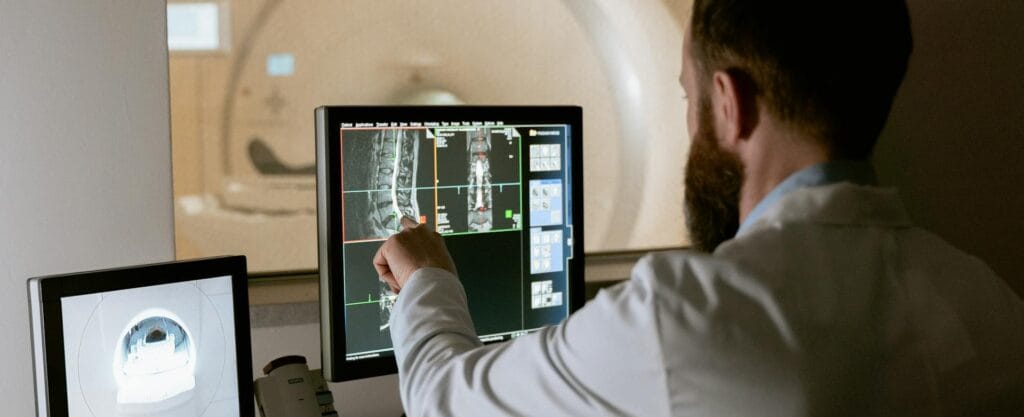In the realm of laboratory testing and calibration, quality is paramount. Whether it’s a medical lab conducting tests that inform critical health decisions or a calibration lab ensuring precision in manufacturing, the reliability of results is non-negotiable. This is where NABL accreditation plays a vital role. The National Accreditation Board for Testing and Calibration Laboratories (NABL) provides a framework that enhances the quality and credibility of laboratories across various sectors. Let’s delve into the significance of NABL accreditation and how it contributes to lab quality.
What is NABL Accreditation?
NABL is an autonomous body under the Ministry of Science and Technology, Government of India, established to assess and accredit laboratories based on international standards. The accreditation process involves rigorous evaluations that ensure laboratories meet specific criteria regarding their technical competence, quality management systems, and adherence to international standards.

Why is NABL Accreditation Important?
- Assurance of Quality: NABL accreditation signifies that a laboratory meets high-quality standards and is competent to provide accurate and reliable testing and calibration services. This assurance is crucial for clients who rely on these results for decision-making.
- International Recognition: Being accredited by NABL means that the laboratory’s results are recognized globally. NABL is a signatory to international agreements like the International Laboratory Accreditation Cooperation (ILAC), which facilitates the acceptance of test results across borders.
- Regulatory Compliance: Many industries require laboratories to hold NABL accreditation to comply with regulatory standards. This not only helps in meeting legal requirements but also opens doors for participation in tenders where accreditation is mandatory.
- Continuous Improvement: The NABL accreditation process emphasizes continuous improvement through regular assessments and surveillance audits. This ensures that laboratories consistently enhance their processes, leading to better quality outcomes.
The Accreditation Process
The journey to obtaining NABL accreditation involves several steps:
- Application Submission: Laboratories interested in accreditation must submit an application along with relevant documentation demonstrating their compliance with NABL standards.
- Preliminary Assessment: An initial review is conducted to assess whether the laboratory meets the basic requirements for accreditation.
- On-Site Evaluation: A team of NABL assessors conducts a thorough on-site evaluation, examining aspects such as personnel qualifications, equipment calibration, procedures, and quality management systems.
- Corrective Actions: If any non-conformities are identified during the assessment, laboratories must implement corrective actions before final approval can be granted.
- Final Assessment and Granting of Accreditation: Once all requirements are met, NABL grants accreditation. Regular surveillance audits follow to ensure ongoing compliance with standards.

Real-Life Example: A Calibration Lab’s Journey
Consider a calibration laboratory that specializes in measuring instruments for manufacturing processes. Initially operating without any formal accreditation, they faced challenges in gaining clients’ trust due to concerns about the accuracy of their measurements. After undergoing the NABL accreditation process, which involved upgrading their equipment and refining their quality management practices, they not only achieved accreditation but also experienced a significant increase in business. Clients were more willing to engage with them knowing they met international standards, leading to enhanced reputation and profitability.
Benefits of NABL Accreditation
- Enhanced Customer Confidence: Clients are more likely to trust laboratories that are NABL accredited because it demonstrates a commitment to quality and reliability.
- Market Differentiation: In a competitive landscape, having NABL accreditation sets laboratories apart from non-accredited competitors, making them more attractive options for potential clients.
- Cost Savings: Accredited labs often experience reduced retesting costs due to improved processes and reliable results, leading to overall operational efficiency.
- Access to Global Markets: With international recognition, accredited labs can expand their services beyond local markets, facilitating trade and collaboration worldwide.
Practical Advice for Laboratories Seeking Accreditation
- Understand the Standards: Familiarize yourself with the relevant NABL standards applicable to your laboratory’s services. This knowledge will guide you through the preparation process effectively.
- Invest in Training: Ensure that your staff is well-trained in quality management practices and understands the importance of compliance with NABL standards.
- Document Everything: Maintain thorough documentation of all procedures, calibrations, and training activities. Proper record-keeping is crucial during the assessment process.
- Engage in Proficiency Testing: Participate in proficiency testing programs to benchmark your laboratory’s performance against others in your field. This not only aids in identifying areas for improvement but also strengthens your case for accreditation.
- Commit to Continuous Improvement: Embrace a culture of continuous improvement within your laboratory by regularly reviewing processes and seeking feedback from staff and clients alike.

Personal Anecdote
As someone who has worked closely with laboratories pursuing NABL accreditation, I witnessed firsthand the transformative impact it can have on operations and culture. One lab I collaborated with initially struggled with inconsistencies in test results due to outdated equipment and lack of standard operating procedures (SOPs). After committing to the accreditation process—updating their equipment and developing comprehensive SOPs—they not only achieved NABL accreditation but also fostered a culture focused on quality improvement among their staff.
Conclusion
NABL accreditation plays a crucial role in ensuring laboratory quality by establishing rigorous standards that promote accuracy, reliability, and international recognition. For laboratories seeking credibility in an increasingly competitive market, obtaining this accreditation can lead to enhanced customer confidence, operational efficiencies, and broader market access.
As you navigate your journey toward achieving NABL accreditation or simply seek to improve your laboratory’s quality practices, remember that this commitment not only benefits your organization but also contributes positively to industries relying on precise testing and calibration services worldwide. Embracing these principles will help ensure that your laboratory stands out as a trusted provider in today’s demanding landscape.